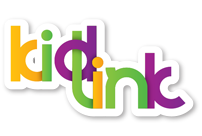Me: “It’s lovely to meet you guys, how do you think OT can help?”
Parent: “Well, I don’t really know what an OT does? My….. said I should come and see you”
It’s a common response and one that scares me a little as it means I then have to explain…And I often find it hard to articulate what I do everyday.
So, after 7 weeks off work enjoying a long awaited trip around Europe, I thought I should start my first blog with “What does an OT actually do?” Not only because it will help me get my head back in the game, but I thought with starting my own practice, I will be meeting lots of people that are “new” to OT.
Since becoming an OT, I have noticed that a lot of people I come across don’t know what I (or occupational therapists as a collective) really do. This includes my friends, family, clients and other professionals. I think this is because compared to some professions, I guess it is relatively new and we often work in a vareity of settings doing different roles.
In a nutshell; Occupations are all our activities of daily life (that’s right…ALL) and the goal of occupational therapists are to enable people to participate in these activities. Sometimes defining what we do is hard because it is so dependent on the individual and THEIR occupations. SO when we talk about client centred practice, we are saying that we form goals and plan our intervention around what is relevant for that person and their situation so it really is different every time. People have different priorities and different things that they feel they need or want to be able to do to lead fulfilled lives.
So how does that fit in when working with kids and what can OT do to help you or your child?
I had a little think of how I might answer this and it just seemed far too overwhelming. So I decided to start with writing down a word for each letter of the alphabet. Hopefully this gives everyone a bit of an idea and makes me look creative. If you have something that isn’t on the list, I’d love to hear it… leave a comment!
So hear goes…. the A to Z of OT:
Achievement (making sure children achieve and progress regardless of how small the steps or how long it takes)
Behaviour (anger management, reward systems, parent support and training, sharing and lots more)
Confidence (promoting self worth and helping kids to experience success and achievement)
Drawing (how to do it, having a go and why its important for school)
Eating (fussy eaters, cutlery use, sitting at the table and trying new things!)
Fine motor (OT 101; getting those little hands going! Lets be honest; hands do a lot! Fine motor skills are the skills that require small, often precise movements of the hands and fingers)
Gross motor skills (the BIG movements –balance, coordination, ball skills, body in space awareness, strength, endurance and the list goes on)
Handwriting (letters, speed, fluency, legibility and hopefully having fun doing it!)
Independence (from putting on a jumper to opening a lunchbox)
Journey (development is a journey and forever changing, recognising that everyone’s path and rate of progression is different) J is also for Jackie, the best OT ever 😉
Kicking (how to do it when its ok i.e. football….and when its not i.e. to other people)
Learning (classroom support, visual aids, positioning)
Making friends (or social skills); sharing, compromise, turn taking, greeting, boundaries, emotions)
Nappies (how to get rid of them and use the toilet!)
Organisation (from bedroom to classroom to homework to diary use and trying to not lose too many belongings along the way)
Play (the primary occupation of all children ; how to play, why is pretend play important?, engaging with peers, learning to take turns and having fun!)
Quiet (inside voices, impulse control and knowing when its ok to be as loud as you like)
Remembering (visual and auditory memory; important in all areas of life!)
Self care (from dressing to toilet training to eating to teeth brushing to shoelace tying and everything in between)
Sensory Integration (how to manage things when our brains interpret sensory input a bit differently! Can’t sit still or hate socks? We can help)
Typing (the way of the future for everyone! And a great option for those that writing isn’t easy)
Understanding (learning concepts, rules, colours, letters, puzzles, problem solving and strategy…the list is endless)
Visual perception (how we perceive what we are looking at impacts on everything, especially school work)
Writing (and pencil grip! Sometimes it matters, sometimes it doesn’t…but it’s a big part of what we do to help kids keep up, succeed and be included in the classroom)
Xylophone (I had nothing else but xylophone represents music and OTs love music (actions, singing, dancing, laughing)
Years (from birth to adolescents) *or older if you don’t work in paediatrics!
Zany (another tricky letter but we’re talking about concentration, focus and embracing the kids that love to move!)
So I know theres a few dodgy ones in there but I hope you get the idea. If you want to know more, I’m always happy to have a chat.

